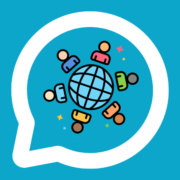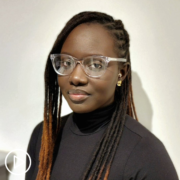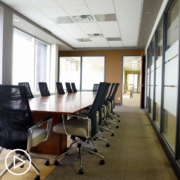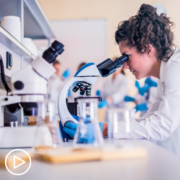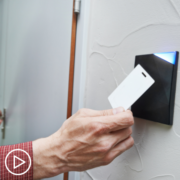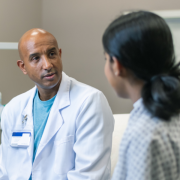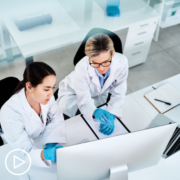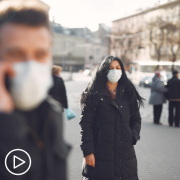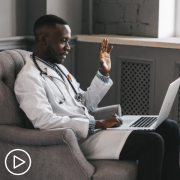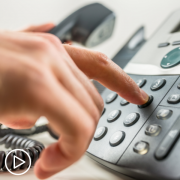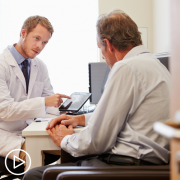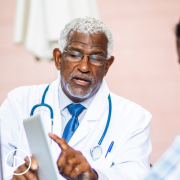How Can I Get the Best Prostate Cancer Care No Matter Where I Live? from Patient Empowerment Network on Vimeo.
How can prostate cancer patients ensure they get quality care even if they live in rural areas? Noted experts, Dr. Petros Grivas and Dr. Yaw Nyame share advice and discuss how to receive optimal care no matter your geography or financial status. Learn about resources and digital tools you can utilize to ensure better care no matter where you live.
See More From Best Prostate Cancer Care No Matter Where You Live
Related Resources:
Transcript:
Dr. Nicole Rochester:
Hello and welcome. I’m Dr. Nicole Rochester, your host for today’s Patient Empowerment Network program, and we are so happy that you’ve tuned in. Today we’re going to be talking about how prostate cancer patients can truly get the best care no matter where you and your family live, we’re going to talk about things like how can I remove roadblocks in my care to gain access to state-of-the-art treatment? Will my insurance limit me if I wanna get a second opinion as a care partner, how do I best advocate for my loved one and is a clinical right for me? The answers to some of these questions we receive revolve around awareness, feeling empowered to ask questions and connecting to the right resources at the right time. In this program we’ll be learning just that as we meet our experts. It is my honor and privilege to be joined by Dr. Petros Grivas, Associate Professor and clinical director of the genitourinary cancer program at the University of Washington. And Dr. Yaw Nyame, Assistant Professor in the Department of Urology at the University of Washington. Thank you so much for joining us today, gentlemen.
Dr. Nyame:
Thank you for having us.
Dr. Grivas:
Thank you so much for having us. It’s an honor and pleasure to be with you.
Dr. Nicole Rochester:
It is my honor as well. Please remember that this program is not a substitute for seeking medical care, so please be sure to connect with your healthcare team on the best options for you. Now, let’s take a few minutes to set the stage and give a brief overview of barriers in the way of achieving equitable prostate cancer treatment. Doctors Nyame and Grivas, we know that location, socioeconomic status, insurance, financial hardships, lack of urologists in rural areas, geographic distance services and access to transportation all play an important role in the outcomes for patients and families facing a prostate cancer diagnosis. So, I wanna start with our first question, and we’ll start with you, Dr. Grivas, what are some of the barriers that prostate cancer, let me do that one again. What are some of the barriers, both prostate cancer patients and their care partners face when seeking care?
Dr. Grivas:
Thank you so much. These are really important discussions, and I’m glad we’re doing this program. I think you covered a number of those barriers in your introduction, and I would definitely agree with all of them because many of them are important. The number of those factors have to do with the location of the patient as you mentioned, patients regardless of race, if they live in a rural community, then they have less communication or contact with a medical care system, and that’s in all reality there’s data suggesting that a cruelty to states this access to care issue is becoming more and more noticeable, and the distance involved in some ways to get a medical facility, let alone a specialized medical facility, specialized in-person culture. It can be a big problem. The other issue that we have seen many times, again, in some communities more than others, is healthcare literacy and the preventive mindset as I call it, and that again, can transpire across races, but maybe even more intense in some of the populations. And when I talk about health literacy and preventive mindset, it’s about the relationship, an individual of the healthcare system, and sometimes the distrust, right, that may take place and also the, I would say comfort that the patient has to enter and access a medical care system that they can allow the providers to take care of them, and these are real, I would say, examples that we have seen based on having this concern of letting sales be taken care of in a medical system, competing problems and barriers include financial contraction, that’s a big one.
Insurance coverage. We know that patients who… I would say social determinants of health may have not very good coverage, and this may be restricting award medical facilities that they can access, and also the cost of care, co-pays, for example, when diagnostic tests or acute interventions for orderly available agents can be a big carrier and no compliance can be diminished with co-pay. Of course, you mentioned many other factors, transportation issues, finding coverage of work, getting day off work can be a problem for some patients, and also the cost of transportation or lodging or parking sometimes can be a problem or even the anxiety to go to a big city and deal with a traffic of course. So there are many factors, of course, but I think we have to have a systematic approach how to catalog them and address them in a comprehensive way, and I think there are some improvements and we can talk about them today, for example, telemedicine and others, but I think the list is long, and we have to keep an open mind and engaged patient advocates in cataloging those barriers. Maybe Dr. Nyame can comment further in that regard.
Dr. Nicole Rochester:
Thank you so much, Dr. Grivas, yeah, you covered a lot of ground, and I appreciate that Dr. Nyame I’d love for you to either add to that list or maybe expand based on your perspectives.
Dr. Nyame:
Dr. Grivas didn’t leave me with much to cover, which is great. I think what you hear, in his answer to that question is that this is really a social issue, and I think when we talk about inequities in health, we have to recognize that race in this country, and many places around the world really reflects a social construct, and so the things that really predict how people are going to be able to utilize our services and how well they’re going to do reflect that greater social context, and so to me… You have to meet the patient where they are. And the strength of the relationships that you can build between the healthcare system and the communities that are at risk, especially the ones that have the highest disproportionate risk of bad outcomes or not being able to utilize services is important. And so the barriers include all the things we talked about, but a lot of them that we’ve talked about have been very much healthcare-facing, so we talk about transportation, what we mean that in the source of transportation to our facilities or we talk about money, but we talk about money and the ability to pay for our services, we also miss the other ways in which those social barriers and factors impact the ability to prioritize one’s health.
And so that is a really big problem. And something that we also need to put in the context of this conversation. I think when we take the covers off and we really see what our patients’ lives are like, sometimes we recognize that it’s not just about their ability to utilize the services that we provide, but that there are bigger issues at hand that also need addressing. Those aren’t in Dr. Grivas and I’s domain, but I think we have to understand those things to meet our patients where they are.
Dr. Nicole Rochester:
Absolutely, I really appreciate that both of you have really focused on those social determinants of health. I appreciate you mentioning racism, and the fact that the patients being able to prioritize their health, I think historically in medicine, we have blamed our patients for not taking care of themselves, so to speak, without a full appreciation of all of these barriers that both of you have just identified, so I really appreciate that.
So we started slightly to talk about solutions, but let’s shift to solutions and what are some of the solutions that you all recommend for some of these barriers, and like you said, as physicians, a lot of that is going to be out of your purview, but I’d love for each of you to suggest any solutions for our patients and care who may be facing some of these barriers, so this time we’ll start with you, Dr. Nyame.
Dr. Nyame:
This is an area where I think we need to do better in collecting information to understand where the need is, and so I think there is a very much a need for translational health services or patient-centered research, where we do the simple thing, if I was gonna open up a lemonade stand in the middle of Seattle, I’d probably ask a few people what their needs are around lemonade before I open the stand, and I think in medicine, we often offer our services and solutions without having had that simple conversation of What are the needs? I think in addition to that, we have to understand that equitable care might mean offering additional services for certain populations, so for us at our cancer center, for instance, we’ve recently instituted a patient navigator program, something that’s been around for a long time, and other sites but it’s allowing us to do that, go through that exercise of providing some equitable care by helping people coordinate appointments, find their way to financial resources that might support them, and just to be there as a support in the very difficult time of having a new cancer diagnosis, so I think that’s a well-proven and well-established method for helping people get access to care.
The other thing I’ll add is that we make decisions, I think as humans, we make decisions through community, and sometimes that’s our partner, sometimes that somebody at the gym, sometimes that’s a co-worker, and there are a lot of really fantastic patient advocacy networks that exist that can help people find this new community, and I think cancer patients share a very unique bond and in a very unique way to communicate with one another because they’re living through this particular diagnosis, and so for in the case of prostate cancer, especially prostate cancer in black men, you have the Prostate Health Education Network, you have Zero Cancer, you have Us TOO, you have the Prostate Cancer Foundation, probably leaving some advocacy groups off and I’m probably gonna get in trouble, but I think that there’s that opportunity to reach out to others and just learn… What did you go through, what worked for you? How can I meet my goals of care through just conversation with other patients and survivors, and I’ll try to leave something for Dr. Grivas to the conversation ’cause clearly I could go on and on.
Nicole Rochester:
Dr. Grivas?
Dr. Grivas:
I’ll tell you that I am learning every day from Dr. Nyame. He’s fantastic work in this important topic, and I think he covered the answer so well, if I can just add a few more things just to expand on this sorts. And these are things that already he’s doing in his programmatic development in our institution as well. I think one of the important things we have to acknowledge is the issue of systemic racism and implicit bias that I think you referred to Dr. Rochester. I think the more we talk about, the more transparent we are with it, the better because we can think about what are unconscious or subconscious thoughts that we may have, you know this patient doesn’t care about themselves. Why should we go the extra mile to help them? We should go the extra mile to help them because this patient may have less inside of the situation, and they need more resources and as a healthcare system, we should try to earn that patient, right? We should not let that patient go because every patient matters, right? And I think every life matters. I think that’s important. I think overall a systemic issue to discuss. The other thing is getting our sense of the community, and I think the examples of studies we have done in the clinic and other areas that we try to utilize the wisdom and the help of local leaders in those communities for example, underserved populations go to local churches or barber shops or gyms as Dr. Nyame mentioned and collaborate, work with the local leaders and see how we can have a dialogue with the patients there. How can we establish this trust that may be missing, how we can convey that health is important, and prevention is important, and treatment is important, how can we help with financial constraints, right? How can we get patients to the cancer center without them having to worry about how to get there, how can we reach out and have screening in the present county screening in the community, if it’s indicated then access to care telemedicine, and that brings an issue, do the patients have equipment for telemedicine, a computer, we take it for granted, but it may not be. So given those resources, organizing some local centers with this Men’s Health Day, just to get people in a room and educate them, but also learning from them what are the barriers to take it into account, not talk down to them, but learning with them and from them.
The other thing is research and that will have to do a better job to include an offer in an equitable manor clinical trials to our patients including patients from different races and we are doing, I think, overall, okay, but we are not doing enough, we have to do better in order to provide this opportunities to our patients and the role of patient navigators is great. We can set examples, and we have patients who feel much more comfortable when they have a patient navigator. Sometimes if it happens to be in the same race with a patient then the patient feels more comfortable. They have someone that they can trust or it will be easier to talk to, and I think we should definitely improve and work harder to provide access to research inequitable manor to our patients. The last point I would say is, patient co-pay assistance programs and foundations, I think we can definitely include more resources to our patients, philanthropy, foundation support and state programs in order to give those patients the resource they need again to achieve this holy grail, which is equitable health care.
Dr. Nicole Rochester:
I love that you all are focusing on equity, which as we know, is giving every patient what they need in order to achieve their optimal health, and as both of you have stated, that’s very different than equality, and so this concept that we really have to meet our patients where they are, and that some of our patients may be a little bit more than others, and that’s okay, in fact, that’s really what we have to do in order to eliminate these disparities, so I really appreciate both of your thoughts and that’s a great lead in to our next segment, which is really focused on racial and ethnic disparities, and both of you have kind of touched on this a little bit already, so we know that there are as with every other type of cancer and every other disease, there are significant health disparities with BIPOC patients, and so Dr. Nyame, I’d love for you to talk about specifically with prostate cancer, some of the disparities that you see in your practice and in your research, and then what are some things that patients of color can do to protect themselves from these inequities?
Dr. Nyame:
This is a very important topic for me, it’s something that I am very passionate about, and as Dr. Grivas alluded to am doing a lot of research on, and I think the statistics are so grey. Black men are 80% more likely to be diagnosed with prostate cancer. So the average man in the United States has a one and nine lifetime risk of being diagnosed prostate cancer, that’s probably one in six or one in seven black men. Black men are twice as likely to die from prostate cancer compared to men of other races and ethnicity in the United States, and a lot of this is driven by the social milieu and factors that we’ve talked about today. What troubles me is when we talk about these statistics, I fear that that in of itself is crippling for some black men. If I have this diagnosis and I’m not gonna do well. Why should I do anything? And I can tell you that the literature and all the research that we do, and it gets refreshed every 10 years or so, someone will do the study and it shows that if we have Black men and men of other races or white men, and we give them the same treatment for the same level of disease, that the outcomes are actually very similar, and a better way to state that for me is if you’re diagnosed early and you get the treatment that you should get irrespective of your race, it seems like outcomes can be quite good.
And so a lot of what we see with regards to prostate cancer inequities are driven by lower treatment rates and probably an impact of lower quality care. And when I say that, what does that mean? Well, do you get your care at places like the Seattle Cancer Care Alliance or the Cleveland Clinic, or John Hopkins or MD Anderson, where you have providers who are expert and do a lot of prostate cancer care, or are you being seen by someone in the community who I guarantee is an excellent clinician, but doesn’t have the same resources and the same expertise in the sense of being focused on one disease process or one set of cancers, for instance, we are genital urinary cancer specialist, a fancy term for being cancer doctors of the plumbing system, but because that’s all we focus on, we know a lot about the process we know what works, and we know what the standards of care. So I think when you can get the right treatment at the right time, and you can get it from teams that are really specialized in this, that our outcomes are going to not care about what your self-defined races when you check box.
The problem is, how do we get… How do we close that gap that exists currently that doesn’t allow people to get that care, and I think we’ve talked about rurality, so I think… I grew up in Oklahoma, and I could see that if you are in the sticks in Oklahoma and you’re not near a cancer center, like something down in Dallas, that your care might be impacted, but… Especially if you have to travel a lot and it’s expensive. But we have major US cities like Los Angeles where you may share a zip code with a millionaire but use very different health services, so it’s not always a reflection of how far you have to travel, but it also is factors about how welcoming institutions that provide high quality care can feel for populations like our BIPOC populations who sometimes have been the subject of medical experimentation and lower quality care sometimes because they might not get shuttled to the same services historically, and I think we have a lot to undo to rebuild the trust that is required to have black men not be fearful of seeking care from us, but be trusting.
Dr. Nicole Rochester:
Absolutely, and certainly the COVID pandemic has really brought that whole mistrust and distrust to light, so I appreciate you touching on that. We’re going to move to talk about treatment access, and I love how this conversation is flowing because so many of these elements have already been discussed, so we’re gonna talk about treatment access for prostate cancer patients, and we know that sometimes the barriers that patients face, as you mentioned actually limit their access to quality care and to appropriate treatment. So, Dr. Grivas, how can we ensure that a patient’s geographic location doesn’t dictate the quality of care that they receive?
Dr. Grivas:
A very important question for sure, and I think as you point it out, we have tasked upon this before, but I think it is definitely much more to be said and done. More importantly, I think the location has to do with multiple differences in social constructs, right? The location of the distance from a cancer center with expertise is one thing at the time to get to the cancer center is related to that, and also the social support that the patient may have, if for example, a particular treatment, for example, a clinical trial, the requires a weekly visit to the cancer center, is that the feasible thing for the patient who lives miles and miles away in the rural areas of Oklahoma as Dr. Nyame mentioned or somewhere else. Can we design a clinical trial that are more friendly to these scenarios that require less frequent visits. Can we provide, if possible, funding for housing closer to the Cancer Center, and there are examples of cancer centers doing that. They provide temporary housing for the patient to be able be close the cancer center, so they don’t even worry about going back and forth across the state lines sometimes.
The other thing, of course, is insurance coverage, and again, this can have some relation to location, and it’s something we have to think about, how can we help our patients who have significant copays because of the recommended insurance to that location being supported by foundation or all other funds that the cancer center or the state, or again, other foundations, we have. The other issues about diagnostics and treatments, there has been some interesting discussion about particularly prostate cancer, about access to what we call next generation sequencing, which is a diagnostic test aiming to profile or fingerprint the cancer DNA to look for particular mutations that the cancer may have that may lead to a particular treatment options.
If, for example, mutation A is present, can we use a drug X that might be relevant in that context of a mutation and a recent data that was presented at ASCO 2021 showed that if you look at those mutations, they’re not very different between, for example, white and Black patients, there are similar types and frequencies of mutations. What is different is access to the test and, of course, access to the [inaudible] of the test. So I think we have to do a better job bringing ourselves to the community, extending our opportunities to the patient to get connected with the healthcare system, and they’ll build bridges to bring the patient and closer to the cancer center offering those tests. Work with patient navigation to help patients understand the significant value of the follow-up, but also provide them with a way that there’s equitable access to diagnostics and treatments.
Dr. Nicole Rochester:
Thank you, thank you so much, Dr. Grivas and you’ve touched on something that I’m going to ask Dr. Nyame to elaborate on which is these fancy tests and these new technologies and things, and what we know is that a lot of times the patient themselves, if they are not aware of these particular tests, then because of all the disparities that we’ve talked about, they may not even be offered to them. And so a question for you, Dr. Nyame, how can we empower patients so that they don’t feel limited in their care, and how do we make them aware of these treatment options and diagnostic options that Dr. Grivas just spoke of?
Dr. Nyame:
You know that’s very challenging because Dr. Grivas, and I see this in our clinical practice, we have patients who are very savvy, that’ll come in and say that I’ve heard that there’s a PSM in San Francisco. Do you have it in Seattle? If you don’t have it in Seattle, I’m gonna go to San Francisco. And for every patient I had like that, who might be, Hey, have you read this latest article, I can have someone who has no idea of what’s going on with their diagnosis, and so how we create opportunities to bring those patients and know very little up to somewhere close, maybe not quite to the demanding the PSMA or a fancy scan level, but sophisticated enough to feel empowered in their health decision-making as something where I think we need to do research because we know that certain tools, navigation, advocacy groups can help in that arena, but I think that we need to understand what the tools are that patients want. What’s interesting is when you query patients, which we’ve done in a study and you say, What are the most pressing issues for you in your prostate cancer diagnosis, whether it’s in the localized setting or in the advanced or metastatic setting, the one thing that has resonated over and over again, irrespective of race is I need help making decisions, I need tools that will make it, me more efficient in how I make my decisions. And so I think without punting the answer too much, we need to do better, and I think part of that starts with listening. I do think that providers can be trained to provide that information in a more efficient manner. We do not… We as clinicians, are built into a system where the number of patients we see really correlates with how we get paid, and there’s not a doctor that doesn’t go to work excited to educate and build relationships with patients, that’s not the case, but there is a time crunch and I feel like in situations where there is a bigger gap and knowledge and understanding, we often don’t have enough time and built into our day to have the discussion, so for me, for a lot of my patients who I feel like have a lower understanding of what’s going on with regards to their prostate cancer diagnosis, it’s really important for me to build into our visit the understanding that whatever we don’t cover can be addressed at a later time and that we don’t have to make a decision with that at particular visit. So when I think about this, it’s sort of like your favorite barbershop or your favorite grocery store, your favorite sandwich place, the relationships matter.
And I think when we talk about empowering patients to be advocates for themselves in their clinical visits, I think there needs to be an understanding from patients that if it doesn’t feel right, that they have options and to take their time in the decision. Prostate cancer, unlike other diseases, that Dr. Grivas and I treat doesn’t have to have the dial turn to 10 or 11 right away, and we need to make a decision because time is extremely sensitive, even in our most aggressive localized settings, which is what I treat, we have the opportunity to take weeks, if not months, to come to a decision.
Dr. Nicole Rochester:
Thank you, thank you so much, I appreciate that. And certainly as a physician who’s also a health advocate, I strongly agree with what you said about if the relationship is not working, that there are options, and I know that that may not always be the case depending on where patients live, but I regularly encourage my clients to sometimes you have to look somewhere else, sometimes you have to get a second opinion or maybe even fire your doctor if the relationship is not mutually beneficial, so I appreciate you sharing that. Dr. Grivas, do you have anything to add in terms of how patients can take a proactive approach to their healthcare and how they can build this confidence we’ve been talking about and express their concerns to their medical team?
Dr. Grivas:
I think Dr. Nyame covered it so well. I think it’s critically important for all of us to recognize that the finding out the why is probably the key to answer those questions, why there is this distrust, why someone is not paying attention so her own health because they have to try to make ends meet and keep family fed during the day time, and they don’t have time to think about their own health as Dr. Nyame mentioned before, at the same time, empowering the patient that they are the center of this relationship.
Why doesn’t Dr. Nyame go to the clinic in the morning is because of patients, so our training is patient-centered and our practice is patient-centered and our research is patient-centered, so the patient should feel that right from the door, that this is a service to them. And we’re doing what we’re doing to help their life being longer, longer survival, as we call it, or better, better quality of life, and listening to the patient’s needs is important because of the time crunch that Dr. Nyame mentioned before, I think many of us, probably all of us are within situations where we don’t have enough time to listen advocate, what the person have to say, that’s why I think it’s important to have opportunities for separate visits and utilize better other mechanisms, exact mechanisms, patient navigation I think it’s a critical part of our care, social workers, case managers, financial counselors, nutritionist, genetic counselors, looking at genetics in for the disposition to cancer which is much more common than we think occurrences sometimes we be higher in some certain populations. Having this service available to patients, can help a lot because they will give them knowledge, and knowledge is power by itself, so give them the center, we’re here for them. Why they’re here, it’s because we want to help them and giving them also resources, they need to get now let’s information, when they feel they have more knowledge and they feel that they have control, they can communicate back and give feedback of how we can do better and also, what are the priorities of their needs, so we can address those, what matters to the patient, and this can apply to base and care, and also is what questions we’re asking? Research should be defined by patient priority, so all of those factors should be a dialogue with a patient, I think advocacy groups can be a great liaison to help us disseminate this concept and help again, empowering the patients. I struggle believe that explaining the why and giving knowledge, the data points in a simple and lay manner, can patients think being more in control.
Dr. Nicole Rochester:
Absolutely, thank you, both of you. I love the patient-centered focus, that is something that admittedly, we’ve gotten away from that to some degree in medicine because of the time crunches that both of you have mentioned, and I love that you said knowledge is power. So as we close, I’d love for each of you to share maybe a couple of key questions that patients, our care partners facing prostate cancer should ask of their treatment team to ensure that they’re receiving appropriate care.
So we’ll start with you, Nyame. Any key questions that patients should be asking their care team when they seek treatment or diagnosis of prostate cancer.
Absolutely, I think that there’s a long list. Actually, I’ll tell you, my new prostate cancer diagnosis visits are usually my longest because there’s a lot to consider. I do think depending on what you’re having done and what you’re being considered for, so let’s say in the localized setting, prostate cancer is confined to the prostate, and you’re thinking about treatment like a surgery or radiation therapy, you really want to know what that center and what that provider’s experience is because we have a lot of supporting evidence that the more people doing this… No one’s going to be surprised by what I’m about to say, but the more that someone does is the better they’re gonna be at it. Okay, and so making sure your team has a good experience with what you’re seeking to have done is important, and I think it’s well within your rights as a patient to understand that, so I think advocate for that. Secondly, I think basic questions, just to understand the relationship, I think… I like it when patients wanna know a little bit about me because I’m gonna be… They’re gonna be in my hands, and so again, the importance of that relationship building and your visit is crucial.
Lastly, I think when you come to the visit, have a list of questions based off of what you’ve researched and write them down, I find my most sophisticated patients or crossing off questions as I’m talking, ’cause they came prepared and so that preparation… The act of doing a little bit of reading, there are a lot of resources, the Prostate Cancer Foundation, for instance, has a very nice patient guide that’s written by patients and language that’s really digestible and edited by experts, and so going through that and coming with your list of questions, I think is a really important thing for your visit, and those are just a few things I can think of that can lead to a meaningful clinic visit and exchange.
Dr. Nicole Rochester:
Excellent, I’m a huge fan of questions and being prepared for visits, what about you, Dr. Grivas are there one or two key questions that you feel patients or their care partners should ask?
Dr. Grivas:
Great answers by Dr. Nyame, I totally agree. I think started with the basics, What this diagnosis means for me, what is the current extent of the cancer, we call the states, and what is the outlook, what is the overall prognosis or at least estimate of the outcome, that’s a reasonable question to ask and again some places more detail, some others may not, and it’s important for us also to ask the base and what they want to know, how much they want to know, I would take in things of them, they want to know the entirety of the information because it makes… Help them make decisions. The other, I think it’s important point, what are the treatment options and what is the intent of the treatment, what are we trying to achieve by giving treatment, are we trying to cure, eradicate or eliminate the culture, are we to prolong life, are we trying to improve quality of life or are we just trying control the cancer, so what are the goals of the treatment and what are the metrics of success, so what will be a successful outcome of that treatment? How do we measure that? And I think it’s also important.
Two more points, I would if I may. I think, again, going back to the importance of genetic counseling even more in prostate cancer, I think we recognize the importance in the aspect of patient treatment because some treatment options may depend on finding mutations. But also the importance of the family, how much can prevent cancers in the brother family, close and extended family, if we find the mutation, can we set this mutation for other family members and do screening to prevent cancer prevention is ideal if we can do that and I think that’s a good discussion, so the patient can come to the visit if possible, by doing some homework about the family history. It’s hard for of us now, what’s happening in that chasm, right? But we do have the time to be informed of the importance of the question, this can help and expedite in our resources like to genetic counseling. And the last points, research, I want to again make the point, we should all do a better job to offer innovative clinical trials to patients across races, and it should be a very important point again equitable healthcare. And the patient should ask are clinical trials an option for me and do I have a clinical trial option? And I think it’s a great question, and hopefully this can help the patient get to integrative treatment, but also help the field.
The research would get important answers, and the important answers can be for all the community and the specific populations, if we do trials, clinical trials with only the white patients, do we have the answer for the black patients, or we have the answer for both and other races and ethnicities as well.
Dr. Nyame:
And I do wanna take this opportunity to add one more thing because Dr. Grivas was talked about what does your treatment mean for you, and in this discussion about prostate cancer, we cannot talk about what questions do you bring without mentioning the impact, quality of life of our treatments, and I think that sometimes this is the elephant in the room that leads to the decision to not pursue treatment, and so I want to take this opportunity as the urologist to say, This is the time to talk about what treatment is gonna do for sexual function. This is the time to talk about what treatment means for your urinary symptoms and quality of life, a good and healthy discussion around these things need to happen during your visit, because I think sometimes what patients expect to have happen with treatment and reality don’t match. And you have an expert in front of you that can really give you some input as to what to expect, and in a similar vein, when you meet with survivors, these are some of the things that I know patients tell me they’re worried about, and these are people who are living it, that can give you really valuable information on that piece of quality of life, and I hope that those conversations can help us close that treatment disparity that we see between black men and white men with prostate cancer.
Dr. Nicole Rochester:
Such wonderful points. This has been an amazing conversation. Thank you so much, Dr. Nyame and thank you Dr. Grivas for just illuminating so many important issues, just to briefly summarize, we’ve talked about the disparities that exist in prostate cancer, diagnosis and treatment based on geographic location, based on finances, insurance that is access and… Yes, even race and ethnicity, and you all have done a wonderful job providing solutions, we’ve talked about the importance of advocating for yourself and your loved ones, the importance of being educated and doing some research, coming to those visits with your questions, making sure that you form a relationship with your treating physicians and sometimes perhaps seeking someone else, if that’s not possible, so just… So many gems, and I just wanna thank both of you for spending this time with us today, and I wanna thank you all for tuning in to this Patient Empowerment Network program. I’m Dr. Nicole Rochester, and thank you for joining us.
Dr. Grivas:
Thank you.
